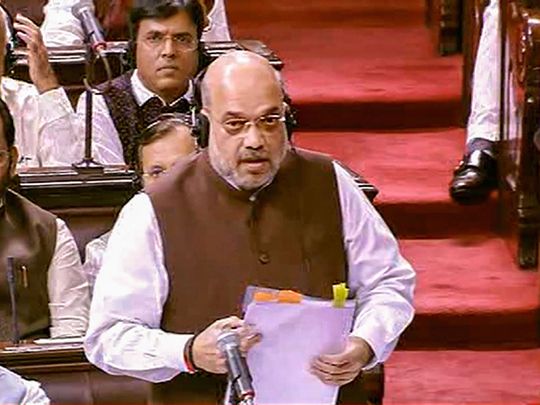
Dubai: India’s Union Home Minister Amit Shah stirred a social media debate in the country on Saturday after he pitched Hindi as a common language for the country. He said Hindi is the most widely spoken and can unite the whole country. The comment resulted in trending hashtags such as #StopHindilmposition and #StopHindiImperialism with people telling him that he was not right and that such a decision was not okay.
The reaction is not surprising since India has 122 major languages and 1599 other languages. But that’s not it. The 2011 national census showed that more than 19,500 dialects are spoken in India as mother tongues.
India has no national language
Some Twitter users who supported Amit Shah's idea could not understand why this was a big deal.
But, Twitter India doesn't agree. Why? India does not have a national language. Part XVII of the Indian Constitution designates Hindi as the 'official language' of the Union. And, English is used in official purposes such as parliamentary proceedings, judiciary, communications between the Central Government and a State Government. States within India have the liberty and powers to specify their own official language(s) through legislation. In addition to the official languages, the constitution recognises 22 regional languages, which includes Hindi but not English, as scheduled languages. The number of native Hindi speakers is about 25% of the total Indian population;
The number of native Hindi speakers is only about 25 per cent of the total Indian population and 43 per cent of India’s population use Hindi as their first language. In some states, especially in the southern regions, Hindi is not used at all.
Some non-Hindi speakers said that such a move would cause insecurities among a large section of Indians who didn't speak the language, especially since it could cause them to be treated as second class citizens of the country.
Many Indian Twitter users including those who speak the language took to the micro-blogging site to say that this was an unnecessary imposition and that cultural diversity has to be respected in a vast country like India.
@_DevAkshi_ posted: “#StopHindilmposition India got so many languages, and hindi is just one of them, treat it like any other language, its not necessary we all will know it!”
Many Indians even listed out the various languages they know with #Respect, and said such an imposition would be absurd.
And, a Twitter cartoonist shared this artwork:








